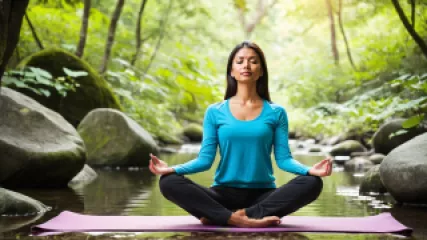Expert Insights on Coping with Uncertainty
Expert Insights on Coping with Uncertainty
Uncertainty is a natural part of life. We all face moments when we are unsure about what the future holds or how to navigate challenging situations. In times of uncertainty, it can be helpful to seek guidance and advice from experts who have studied and experienced coping strategies firsthand. In this interview feature, we will delve into the topic of dealing with uncertainty and gain valuable insights from professionals in the field. From mindfulness practices to self-care tips, stress relief techniques to self-help strategies, and therapy for uncertainty to wellness techniques, these experts will provide us with valuable tools to navigate through uncertain times.
Interview with Sam Martin, Life Coach and Mindfulness Expert
Q: How can mindfulness practices help individuals cope with uncertainty?
Sam Martin: Mindfulness practices can be immensely beneficial in dealing with uncertainty. When we practice mindfulness, we cultivate an awareness of the present moment without judgment. This awareness allows us to acknowledge our fears and anxieties surrounding uncertainty and observe them from a place of non-reactivity. By staying present, we can detach ourselves from the worries of the future and focus on the here and now.
Q: What are some simple mindfulness exercises that individuals can incorporate into their daily routine?
Sam Martin: One effective exercise is the body scan meditation. Find a comfortable position and bring your attention to different parts of your body, starting from your head and moving down to your toes. Notice any sensations, tensions, or discomfort without trying to change or fix them. Another practice is mindful breathing, where you focus your attention on the sensation of your breath entering and leaving your body. These exercises can help ground you in the present moment and reduce anxiety.
Interview with Kurt Ross, Psychologist and Stress Management Specialist
Q: How can individuals manage stress when facing uncertainty?
Kurt Ross: Stress management is crucial in uncertain times. One effective strategy is to establish a routine and stick to it. This routine provides a sense of stability and control amidst the chaos. It's also important to engage in activities that bring joy and relaxation, such as exercise, hobbies, or spending time with loved ones. Additionally, practicing self-compassion and self-care is vital. Taking care of your physical and emotional well-being can help build resilience and reduce stress.
Q: Are there any specific stress relief techniques that you recommend?
Kurt Ross: Yes, there are several techniques that can help relieve stress. Deep breathing exercises, progressive muscle relaxation, and guided imagery are all effective tools. Engaging in regular physical activity, such as yoga or walking, can also help reduce stress levels. It's essential to find what works best for you and incorporate it into your daily routine.
Interview with Mariana Ramirez, Therapist and Self-Help Author
Q: How can individuals utilize self-help strategies to navigate through uncertainty?
Mariana Ramirez: Self-help strategies empower individuals to take control of their own well-being. One effective technique is reframing negative thoughts. When faced with uncertainty, we often have negative thoughts that contribute to our anxiety. By consciously challenging and reframing these thoughts, we can shift our perspective and reduce the impact of uncertainty on our mental health. Journaling, gratitude practices, and setting realistic goals are also valuable self-help strategies.
Q: Can you share any specific self-help exercises or techniques that individuals can try?
Mariana Ramirez: Certainly! One exercise is to create a gratitude journal. Each day, write down three things you are grateful for. This practice helps shift your focus towards positivity and cultivates a sense of appreciation. Another technique is called the "Worry Box." Set aside a specific time each day to write down your worries and place them in a box. This allows you to acknowledge your concerns without letting them overwhelm your daily life.
Interview with Mckenzie Mendoza, Wellness Coach and Therapist
Q: How can therapy be beneficial for individuals dealing with uncertainty?
Mckenzie Mendoza: Therapy provides a safe and supportive space for individuals to explore their feelings and thoughts related to uncertainty. A therapist can help individuals develop coping strategies, build resilience, and gain a deeper understanding of themselves. Therapeutic approaches such as cognitive-behavioral therapy (CBT) or mindfulness-based therapy can be particularly effective in managing anxiety and uncertainty.
Q: Are there any wellness techniques that you recommend to promote overall well-being during uncertain times?
Mckenzie Mendoza: Absolutely! Engaging in activities that promote self-care and well-being is essential. Regular exercise, maintaining a balanced diet, getting enough sleep, and practicing relaxation techniques such as meditation or yoga can all contribute to overall wellness. It's important to prioritize self-care and make time for activities that bring joy and peace.
Dealing with uncertainty can be challenging, but with the right tools and strategies, it becomes more manageable. Mindfulness practices, self-care tips, stress relief techniques, self-help strategies, therapy for uncertainty, and wellness techniques are all valuable resources that individuals can utilize to navigate through uncertain times. By incorporating these practices into our daily lives, we can cultivate resilience, reduce anxiety, and embrace the unknown with a sense of calm and confidence.






